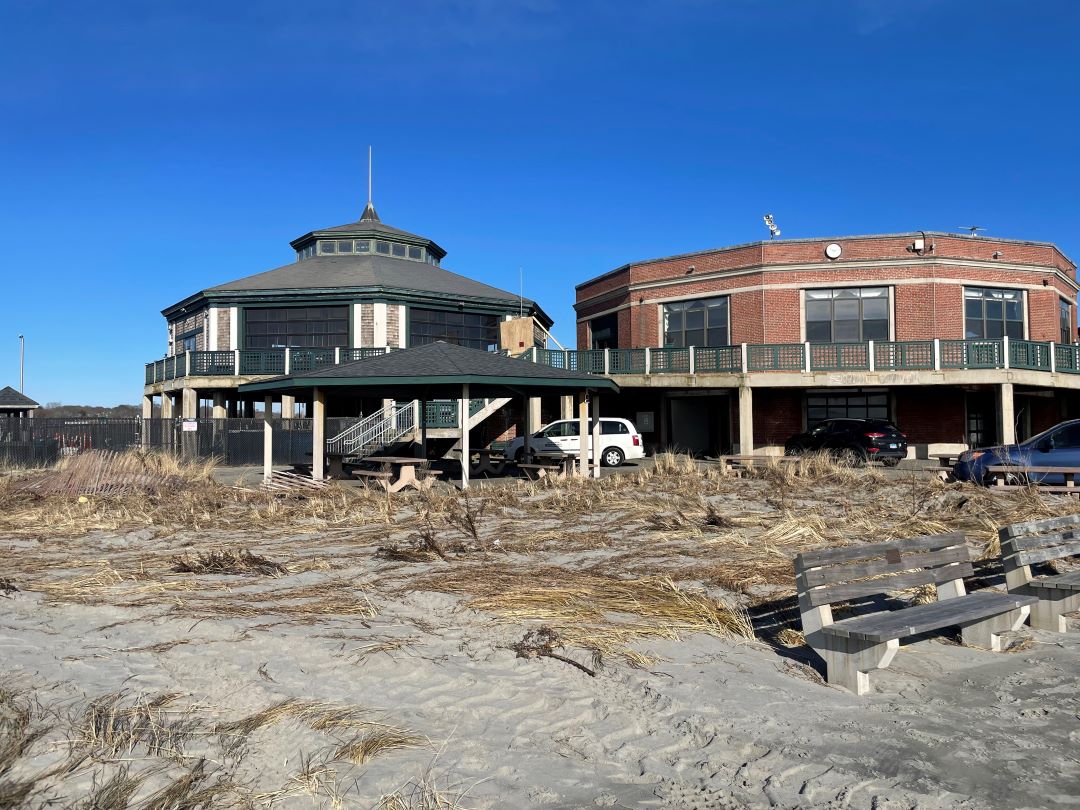Gagged EPA Scientists Scheduled to Speak in Providence
Former agency employee calls White House crackdown on climate science "absolutely appalling"
November 1, 2017
PROVIDENCE — The two Environmental Protection Agency (EPA) scientists and one contractor recently prevented from presenting their research on the health of Narragansett Bay will be speaking at an upcoming science conference at the Rhode Island Convention Center.
Autumn Oczkowski, who was the scheduled keynote speaker at the Oct. 23 event at Save The Bay, is the co-chair of the Coastal & Estuarine Research Federation Conference scheduled for Nov. 5-9. Rose Martin, a postdoctoral fellow, and Emily Shumchenia, an EPA consultant, are also presenting.
The three coastal experts work at the EPA Atlantic Ecology Division in Narragansett, where the effects of climate change are a major area of study. It’s also a topic top EPA officials in Washington, D.C., are discrediting and suppressing, as revealed in numerous media reports. Most recently, the EPA is replacing scientists on its most influential advisory boards with researchers from the businesses they regulate.
The EPA told ecoRI News that Oczkowski, Martin, Shumchenia, and other EPA researchers scheduled to speak at the conference would be allowed to attend and discuss their research. Climate change is a major theme during the five-day conference. Lectures and meetings will address sea-level rise, ocean acidification, stormwater runoff, and the long-term threat of climate change on coastal habitats such as Narragansett Bay and Chesapeake Bay.
The EPA didn’t link the recent silencing of its scientists to their research on climate change. In an e-mail, an EPA spokesman wrote that the three scientists were excluded from the Oct. 23 workshop because “it is not an EPA conference.”
Members of Congress, however, aren’t letting last month’s incident at Save The Bay headquarters slide. In a letter to EPA administrator Scott Pruitt, Rhode Island’s congressional delegation and five U.S. representatives from Massachusetts want to find out why the scientists were excluded from the presentation of the report, which was partially funded by the EPA.
“We are also alarmed by what EPA’s decision to muzzle its scientists means for the future of the National Estuaries Program,” according to the letter.
The letter also asks the EPA to state if climate change or other EPA policies influenced the decision to silence the scientists; for all communications related to the incident between the scientists and the EPA offices in Rhode Island and D.C.; and for information about John Konkus, the deputy associate administrator in the EPA’s Office of Public Affairs.
The letter cites a Washington Post story that accuses Konkus of scientific censorship by reviewing all EPA awards and grant solicitations, and instructing staff to delete references to climate change.
Data manipulation, however, isn’t just happening in D.C.
Curt Spalding, who resigned as head of EPA’s New England office when President Trump took office, said EPA leadership is shrouding research on both climate change and toxic chemicals.
“This is just an all-out assault on the science EPA generates,” Spalding told ecoRI News at last month’s press event to unveil the report on the Narragansett Bay watershed.
He said he hears from former colleagues still working at the EPA.
“They’re not doing well. (Pruitt’s political appointees) are censoring everything. People are not free to speak about issues. It’s always a delicate matter in agencies, what scientists say and do, but we’ve established policies to ensure they had the freedom to speak.” —Curt Spalding
The problem, he said, goes beyond the Oct. 23 incident. “If (EPA leadership is) not willing to hear the science on things, then the future for our children is really in doubt. I see this as much bigger than this.”
Steve Schimmel worked at the EPA research laboratory in Narragansett for 20 years, before retiring in 2016. After years of working on a project, researchers take satisfaction in presenting their reports to their peers and the public, he said. Employees work at EPA because they believe in its mission, Schimmel said.
“These individuals are not just working for a paycheck,” he said. “They want to work for science and help the environment.”
Schimmel said the level of scientific censorship is unmatched, even compared to the Reagan administration, when Anne Gorsuch ran the EPA.
“The situation with the Trump administration goes well beyond that,” he said. “It’s absolutely appalling, I’ve never seen anything like this.”
It’s difficult to refute research that concludes that manmade climate change is altering the environment in significant ways. One of the main findings of the 500-page report on the state of Narragansett Bay watershed was the impact of climate change on coastal habitats.
John King, professor of oceanography at the University of Rhode Island Graduate School of Oceanography and chairman of the science advisory committee for the Narragansett Bay Estuary Program, said many of the gains made in cleaning up the watershed from pollutants such as PCBs and sewage are being undone by sea-level rise, warming waters, and increased precipitation — all of which are caused by climate change.
“These days you have to view everything through the lens of climate change,” King said.
Categories
Join the Discussion
View CommentsYour support keeps our reporters on the environmental beat.
Reader support is at the core of our nonprofit news model. Together, we can keep the environment in the headlines.
We use cookies to improve your experience and deliver personalized content. View Cookie Settings



